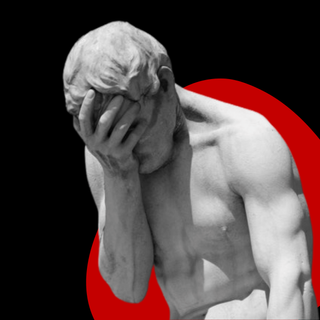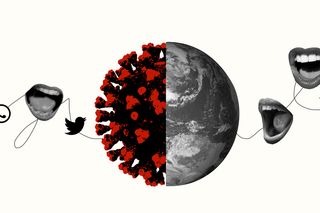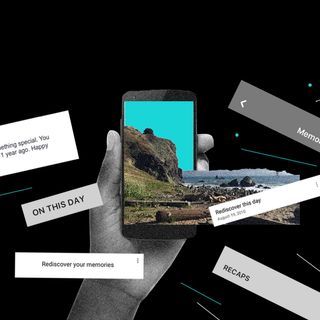
Covid19 Misinformation Is Spreading Across 87 Countries, Costing Lives: Study
The study found that misinformation has resulted in 800 deaths, and close to 6,000 injuries that required hospitalization.

“We’re not just fighting an epidemic; we’re fighting an infodemic,” Tedros Adhanom Ghebreyesus, the director-general of the WHO, had said at the beginning of the Covid19 outbreak in February. His words ring true as a new study reports on the fatalities and injuries of such misinformation, which is spreading globally across 87 countries, in 25 languages.
Published in The American Journal of Tropical Medicine and Hygiene, the study analyzed Covid19-related content circulating on Facebook, Twitter, and online newspapers, between December 31 and April 5, 2020. The study found that claims made in 82 percent of the reports were false, 9 percent were correct, and the rest were either misleading, or unproven. The study authors, including social scientists, doctors and epidemiologists from Bangladesh, Australia, Thailand and Japan, broadly classified misinformation into: rumors (unverified information that can be found as true, fabricated, or entirely false, after verification), stigma (socially constructed process, through which, a person with stigma can experience discrimination and devaluation in society), and conspiracy theories (explanatory beliefs about an individual, or group of people, working in secret to reach malicious goals).
The results showed that 89 percent of the reports examined were dominated by rumors, 7.8 percent by conspiracy theories, and 3.5 percent by stigma. According to a bar graph included in the study, most of the misinformation appears to have circulated in India, the US, China, Spain, Indonesia, and Brazil — in that order. While India led in terms of rumors, as well as the sheer volume of misinformation, the US led in the domains of conspiracy theories and stigma. “Claims were related to illness, transmission and mortality (24 percent), control measures (21 percent), treatment and cure (19 percent), cause of disease including the origin (15 percent), violence (1 percent), and miscellaneous (20 percent),” the study stated.
Related on The Swaddle:
Amid Growing Concerns About Misinformation, WhatsApp Launches Fact‑Check Feature
But the most dangerous finding of the study was the fatal impact of the infodemic. According to the study, a myth that highly concentrated alcohol could disinfect the body, and kill the virus, claimed 800 lives, resulted in 5,876 hospitalizations, and caused 60 cases of complete blindness — because the people who believed the rumor drank methanol. The study further reported that in India, 12 people, including five children, became sick upon drinking a concoction made from Datura seeds, after watching a video on social media claiming that the seed, which is considered toxic, provides immunity against Covid19. Another rumor from India was: “Drinking cow urine and cow dung can cure coronavirus.” And, while the study did not delve into the repercussions of that specific misinformation, news reports suggest that, at least, one individual had to be hospitalized after drinking cow urine to prevent the infection. While the research analyzed reports only up to April 2020, the misinformation has continued to spread unabated well into the present — so, the number of victims of the infodemic could very well be higher now.
“There seems to be barely an area left untouched by disinformation in relation to the Covid19 crisis… When disinformation is repeated and amplified, including by influential people, the grave danger is that information which is based on truth, ends up having only marginal impact,” Guy Berger, UNESCO Director for Policies and Strategies, had told UN News in April. But, the present study has shown us that the consequences of spreading misinformation has a far greater impact on society than people simply flouting rules, or ignoring evidence-based healthcare guidelines — it is literally costing lives.
Related on The Swaddle:
25% of Most‑Viewed Covid19 YouTube Videos in English Contain Misinformation: Study
However, the study also suffers from some limitations: first, the data analyzed by the researchers was obtained from publicly available online platforms, which could mean that there is more information out there that did not make it into the statistical analysis; second, since our understanding of the novel coronavirus is evolving constantly, and at a rapid pace, it is difficult to classify information as myths and facts with absolute certainty in the absence of absolute scientific consensus; and third, while the study was able to compare the rates of circulation of misinformation within countries, it didn’t look at “variation in belief levels in the misinformation across countries.”
So far, in a bid to tackle the spread of misinformation online, Facebook has started flagging fake news stories, Twitter has introduced a new label for tweets peddling misinformation, Instagram began removing Covid19-related content not posted by official health organizations in April, WhatsApp put restrictions on mass-forwarding, and introduced a fact-check feature, and the WHO itself joined TikTok. But, with the pandemic continuing to claim lives worldwide, companies and health organizations must continue their endeavor to devise better, more robust ways to tackle the ensuing, avoidable infodemic.
“Fake news spreads faster and more easily than this virus, and is just as dangerous. If we don’t [tackle misinformation], we are headed down a dark path that leads nowhere but division and disharmony. This is a time for facts, not fear. This is a time for rationality, not rumors,” Tedros had forewarned in February. And now that we have witnessed the fatal ramifications of myths and misinformation, it is time to double down on our efforts to contain the infodemic. “Health agencies must track misinformation associated with the Covid19 in real time, and engage local communities and government stakeholders to debunk misinformation,” the study recommended.
Devrupa Rakshit is an Associate Editor at The Swaddle. She is a lawyer by education, a poet by accident, a painter by shaukh, and autistic by birth. You can find her on Instagram @devruparakshit.
Related


No Link Between Vitamin D Levels and Late‑Life Clinical Depression: Study
